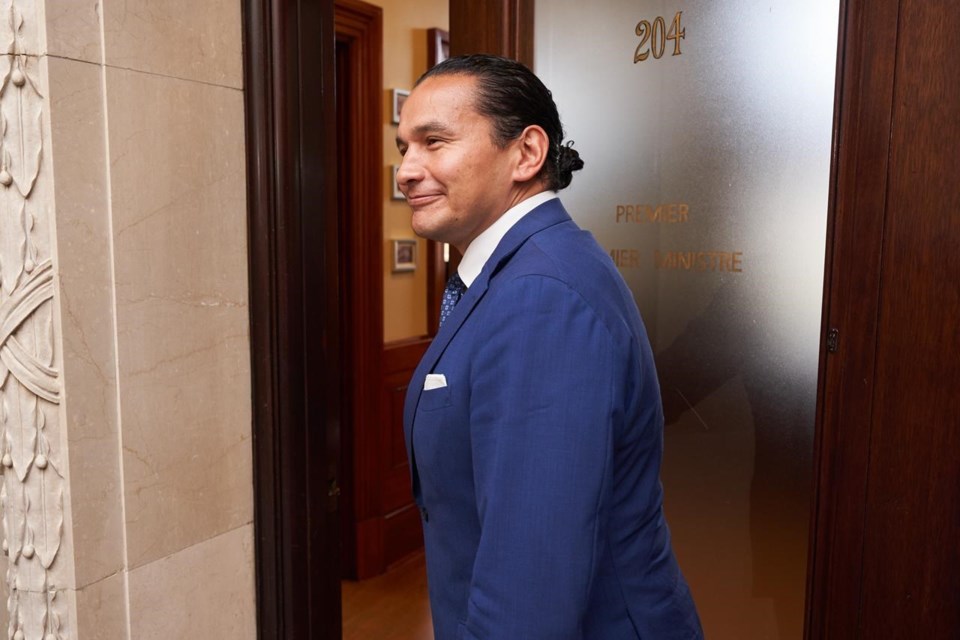WINNIPEG — Métis leader Louis Riel will be recognized as Manitoba's honorary first premier if a bill put before the legislature Thursday is passed into law.
The honorary designation is in recognition of the man who led a provisional government in what is now Manitoba and led the way for the province to join Confederation in 1870, Premier Wab Kinew said.
"Louis Riel is the reason we are Manitobans, and Louis Riel is the reason we as Manitobans are also Canadians," Kinew told a crowd of people gathered to celebrate the occasion in the legislative building.
The bill would also help ensure Riel's story is taught in schools.
"We are going to ask for the Department of Education to work with educators to make sure that we're reflecting the entirety of Mr. Riel's story," Kinew told reporters.
The president of the Manitoba Métis Federation said the recognition had been sought for decades and has finally come under Kinew, the first First Nations premier of a province.
"Why did it take an Indigenous premier — the first First Nations premier, the Obama of the First Nations if you ask me … to do the right thing?" David Chartrand said.
Chartrand said he planned to take a copy of the bill to Riel's grave, which lies in the St. Boniface neighbourhood, across the Red River from downtown Winnipeg.
Riel led a provisional government in the Red River Settlement in 1869 and adopted a list of rights for people of different cultures and languages. As tensions rose during the transfer of land from the Hudson's Bay Company to the Canadian government, Riel fought for the list of rights to form the basis of Manitoba's entry into Confederation.
Facing threats to his life, Riel fled to the United States. Alfred Boyd became Manitoba's first premier. Riel was arrested after a later rebellion in what is now Saskatchewan, convicted of treason and hanged.
His efforts in Manitoba have long been recognized as a key part of Confederation. A large statue of Riel sits behind the Manitoba legislature. Many of the people who attended Thursday's ceremony lay flowers at the base of the monument.
Another statue sits outside the University of St. Boniface.
"We are finally getting justice for this man, who gave his life for our people," Chartrand said.
This report by The Canadian Press was first published Nov. 23, 2023.
Steve Lambert, The Canadian Press




